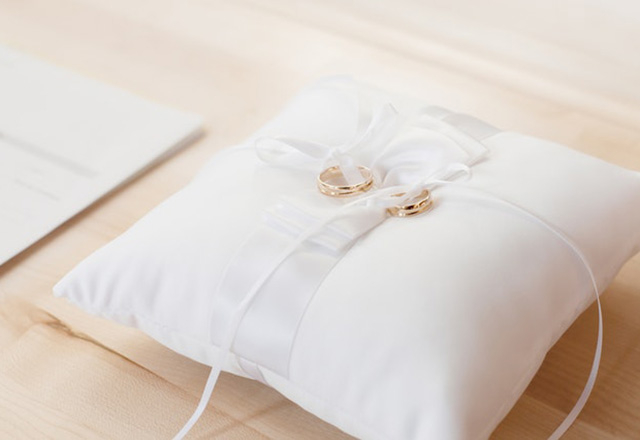How to Wash Pillows and Keep them Clean - Information and Guide

Last updated: Nov 19, 2021
Gossby Experts
Normally, we’re in the habit of regularly washing our sheets & pillowcases and forget to think about what lies beneath pillows and mattresses. In fact, they both need a good clean too. So, how often should we clean both pillows and mattresses? Once each season for your pillows and twice a year for your mattresses.
Neil Kao, MD, an allergist-immunologist in Greenville once said “The pillow is where hair, dead skin cells, sweat, and drool build up over time”.
Basically, all that gunk is the stuff dusting mites love too much, causes their number to multiply, and increases the chance for an allergic reaction to their presence.
In the article, go with Gossby and discover how to wash pillows properly. Keep scrolling and the myth will be revealed.
How to Wash Your Pillows in General?
1. Air it Out
You need to give pillows daily fluffing to restore their shape and remove dust. And, hang them outdoors on a clothesline for hours every month or so. It should be a bright and breezy day when you do that.
Another way to do it is with some foam & latex pillows, just run them through the dryer on the no-heat cycle.

2. Wash Pillows Gently
Don’t you know laundering pillows isn’t too difficult as it just takes a bit of time to dry? If they have a wet stain that you’re striving to remove, just treat the pillowcases & pillows with a stain remover that targets that type of stain before you pop it into the wash.

If you have a large washing machine, you can wash 2 pillows at the same time. That will help balance the load and allow the water & detergent to circulate effectively.
It’s best to agitate on the gentle cycle only for minutes because the agitator on conventional top-loaders can be tough on pillows. Instead, you could make a trip to the laundromat to use its front loaders.
3. Dry Pillows Thoroughly
Getting the pillow completely dry, it’s so crucial as you risk mildew. Forget the auto-dry setting on your clothes dryer as the sensors will detect only moisture’s surface, leaving you with a pillow that is damp on the inside.
Instead of doing that, many pillows can be dried for an hour on moderate heat. Here is a pro tip: you will speed things up by adding a couple of dry towels. Toss in 2 fresh tennis balls or dryer balls and they’ll keep the filling from clumping as they bounce around the drum.

Remember that when drying down or feather pillows, just use the no-heat-air-dry setting and dryer, tennis balls to break up clumps. If it is a mild day, you can hang most pillows on the clothesline till they’re dried all the way through.
You need to check for moisture inside the pillow whichever drying way you use. If it’s completely dry, it’s time to make the bed then.
One suggestion for you is to use pillow covers to protect your pillows from substances like sweat, body oil, and face cream. Clean and wash both the pillow covers and the pillowcases regularly - as I said above.
How to Keep Your Pillows Clean - More Detailed Guide
1. How to Wash Down Pillows
The down pillow contains a soft grouping of fibers that are made from goose feathers coming from the undercoating of the bird. These down clusters get insulting qualities as the design of the feathers & the soft fibers trap air for a fluffy fill. Below, check out the way how to wash your down pillow correctly.

Remove Pillow Covers: make sure you remove all pillowcases or coverings they may have before starting to wash your down pillows.
Inspect Pillow: check your pillows for any obvious trips or tears which can allow feather filling to escape while washing. Repair them with a needle & thread once starting to wash.
Balance Things Out: once washing down pillows, you need to wash 2 pillows at the same time - as mentioned above. Make sure that you load down pillows vertically so they’re not bothered by the agitator in the washer.
Water Temperature: the fact that hot water can kill any dust mites which might be living inside your pillows but can cause feathers to be damaged. Just use warm water, instead, or cool one.
Rinse and Repeat: using an extra rinse and spin cycle is actually a good idea when washing down pillows. This way helps you to get rid of excess moisture & soap residue on the feather filling.
2. How to Wash Memory Foam Pillows
To start with, memory foam is a type of polyurethane foam that has been combined with chemicals to make it viscose & elastic. It means it’s able to slowly contour to your body when pressure is applied and regains its shape slowly once no pressure anymore.

So, reading that short introduction, you can feel how comfortable this type of pillow is, right? Before deciding to have one, I guess you should know how to keep a memory foam pillow clean and wash it properly. Here you are:
First, feel up a sink or bathtub with lukewarm water & small amounts of gentle detergent. Also, add a drop of lavender oil if you’re into the scent!
In this step, slowly submerge your pillow under the soapy water. Squeezing it to allow the soapy water to penetrate beneath the surface. Repeat twice and we move to the next step.
Here, drain soapy water & refill with the clean one. Squeezing your memory foam pillow sometimes to wash away remaining dirt or soap till the water is clear.
Continue squeezing your pillow to remove excess water; however, don’t twist or rigorously squeeze the foam
Now, you leave the air dry, preferably in direct sunlight or outdoors. Leave your pillow under a ceiling fan if neither is available.
Again, sprinkle with a drop of lavender oil (or any other) if you want.
RELATED:
Pillow Décor Ideas - How to Decorate Throw Pillows with Style
How To Choose Right Pillows To Get A Very Sound Sleep? A Complete Guide By Doctors
Keep Your Living Space Tidy with These 08 Smart Pillow Storage Ideas
Final Thought!
No matter what type your pillows are, they should be taken care of properly. We sleep well due to them or I can say they’re our dream guardians. Following this article, I hope you can find a way to make your pillows clean so they can stay with you much longer.
Looking for some fluffy decorative pillows for your living space? Check out our collection of personalized throw pillows that will instantly upgrade your beds, sofas, couches, and more.


View More

View More

View More
